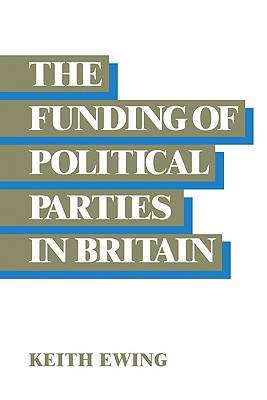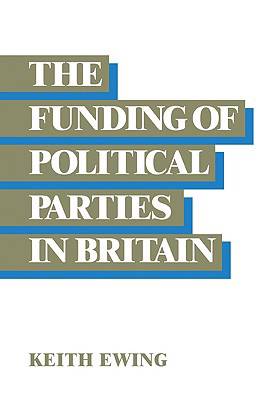
- Afhalen na 1 uur in een winkel met voorraad
- Gratis thuislevering in België vanaf € 30
- Ruim aanbod met 7 miljoen producten
- Afhalen na 1 uur in een winkel met voorraad
- Gratis thuislevering in België vanaf € 30
- Ruim aanbod met 7 miljoen producten
Zoeken
Omschrijving
This study of the way in which political parties are funded examines in detail the corporate funding of the Conservative Party and trade union funding of the Labour Party. In so doing the author considers the legal implications of this activity. The election expenditures of the parties come under scrutiny, as does the role of the state in contributing to their financial well-being. The concluding chapters consider arguments for more extensive public funding of the political parties - as proposed by both the Houghton Committee in 1976 and the Hansard Society in 1981. In considering this issue the author draws heavily on Swedish experience, and throughout the book reference is made, where appropriate, to developments in other jurisdictions, including the United States, Canada and West Germany. This important subject is addressed from a legal perspective, though the book is written in a clear and forthright style accessible to lawyers and non-lawyers alike.
Specificaties
Betrokkenen
- Auteur(s):
- Uitgeverij:
Inhoud
- Aantal bladzijden:
- 280
- Taal:
- Engels
Eigenschappen
- Productcode (EAN):
- 9780521124065
- Verschijningsdatum:
- 17/12/2009
- Uitvoering:
- Paperback
- Formaat:
- Trade paperback (VS)
- Afmetingen:
- 152 mm x 229 mm
- Gewicht:
- 412 g

Alleen bij Standaard Boekhandel
+ 121 punten op je klantenkaart van Standaard Boekhandel
Beoordelingen
We publiceren alleen reviews die voldoen aan de voorwaarden voor reviews. Bekijk onze voorwaarden voor reviews.








